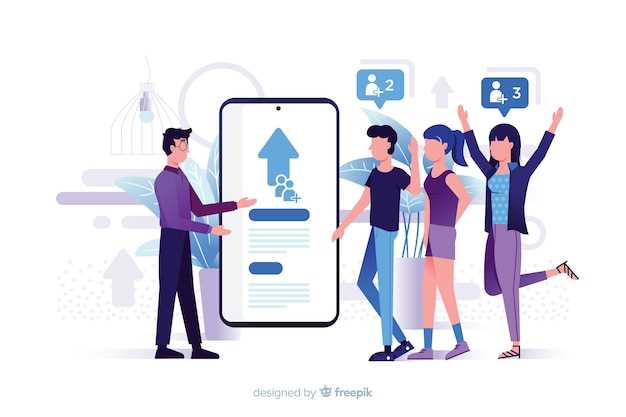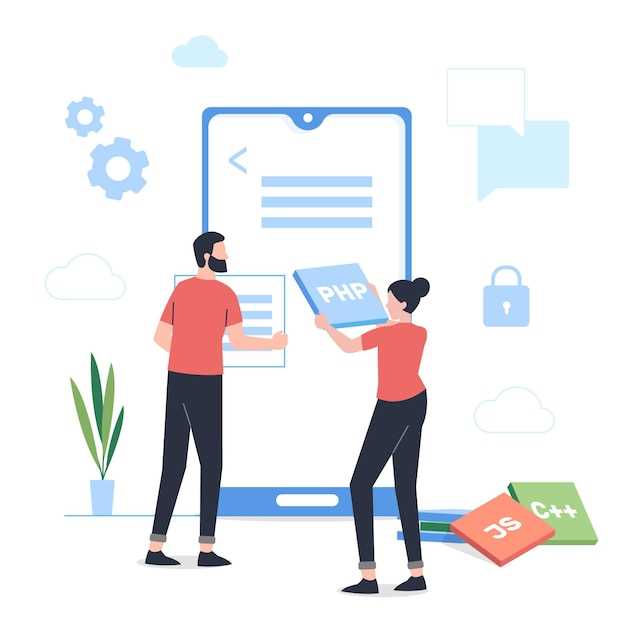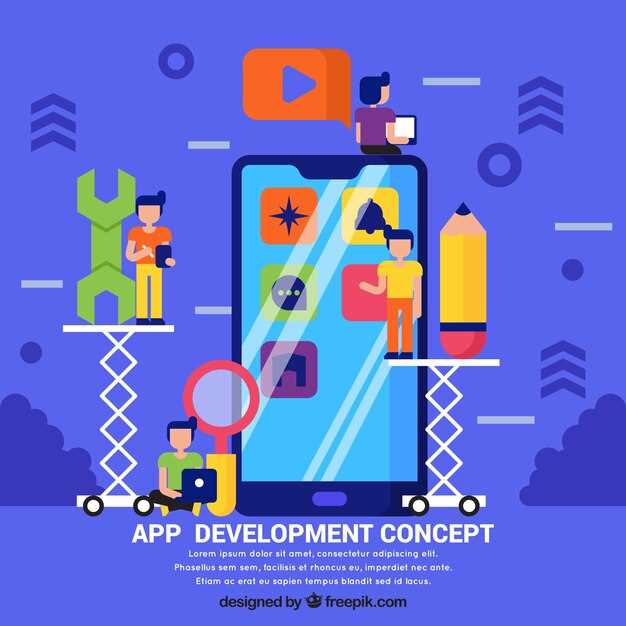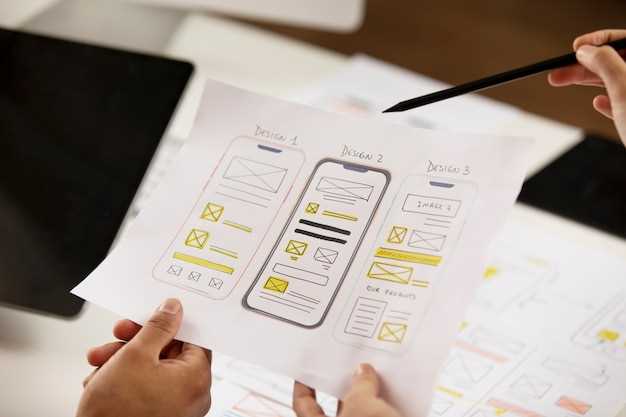In today’s fast-paced digital landscape, finding the perfect collaborator for your next mobile project can be a daunting task. With a plethora of options available in the market, it is crucial to carefully evaluate potential partners to ensure the success of your app development venture.
Here are key elements to keep in mind when seeking a suitable business associate:
1. Experience and Expertise: Look for a partner with a proven track record in creating successful mobile applications. Their experience and expertise will play a crucial role in the development process.
2. Communication and Collaboration: Effective communication and collaboration are essential for a smooth and efficient development process. Choose a partner who values transparency and ensures open lines of communication throughout the project.
How to Choose the Perfect Development Associate for Your Application Creation
When embarking on the journey to create a new digital product, one of the most important decisions you will make is selecting a partner to assist you in bringing your vision to life. Finding the ideal collaborator for your mobile application development project can make all the difference in achieving success. With numerous options available in the market, it’s crucial to carefully evaluate potential partners to ensure a seamless and successful collaboration.
| 1. Selecting a Business Ally |
| 2. Establishing a Collaborative Connection |
| 3. Finding the Perfect Development Companion |
Assessing Technical Skills and Experience
When evaluating potential partners for your mobile application project, it is crucial to thoroughly assess their technical capabilities and experience. By examining their expertise in programming languages, frameworks, and tools, you can ensure that they have the skills necessary to bring your vision to life.
- Review their portfolio of past projects to gauge their proficiency in developing mobile applications across various platforms.
- Ask for references from previous clients to get insight into their overall performance and ability to meet deadlines.
- Assess their knowledge of the latest industry trends and technologies to ensure they can provide innovative solutions for your project.
- Consider their experience working with similar companies or industries to determine if they have the expertise to address your specific needs.
Ultimately, by carefully evaluating a potential partner’s technical skills and experience, you can make an informed decision about who is best equipped to help you bring your mobile app idea to life.
Evaluating Developer Portfolios

Assessing programmer portfolios is a crucial step in selecting the perfect collaborator for creating a mobile application. By reviewing past projects and examining the diversity of skills and expertise showcased in their work, you can gain valuable insights into the developer’s capabilities and level of proficiency. An in-depth analysis of their portfolio will help you determine whether the developer possesses the necessary talent and experience to bring your app idea to life successfully.
Key Considerations:
1. Quality of Work: Evaluate the overall quality of the projects showcased in the developer’s portfolio. Look for attention to detail, user experience design, and functionality in their previous works.
2. Diversity of Projects: Assess the variety of projects in the developer’s portfolio. A broad range of apps demonstrates adaptability and a breadth of technical skills.
3. Client Testimonials: Look for client testimonials or reviews to gain insight into the developer’s professionalism, communication skills, and ability to meet project deadlines.
4. Technological Proficiency: Consider the technologies and programming languages used in the developer’s projects. Ensure that they are proficient in the tools and frameworks required for your app development.
By carefully reviewing and evaluating developer portfolios based on these key considerations, you can make an informed decision when selecting the ideal partner for your mobile app development journey.
Understanding Technology Stack

In the realm of creating applications for smartphones and other mobile devices, it is crucial to comprehend the intricate components that form the foundation of your project. This set of technologies, known as the technology stack, plays a vital role in determining the performance, scalability, and overall success of your application.
Defining the technology stack involves selecting the appropriate programming languages, frameworks, libraries, and tools that will work harmoniously to bring your app to life. These components work together to ensure that your application functions seamlessly across various platforms and devices, providing users with a smooth and efficient experience.
When choosing a technology stack for your mobile app development project, it is essential to consider factors such as the requirements of your application, the skills and expertise of your development team, and the specific features and functionalities you wish to incorporate. By carefully evaluating these elements and selecting the right technology stack, you can increase the likelihood of creating a successful and innovative mobile application.
Setting Clear Communication Channels
Establishing effective lines of communication with your chosen partner in app creation is crucial. Clear and open channels of communication are essential for successful collaboration and ensuring that both parties are on the same page throughout the development process.
- Define the preferred methods of communication
- Regularly scheduled check-ins and updates
- Clarify expectations for response times
- Utilize project management tools for streamlined communication
- Encourage feedback and open dialogue
Defining Roles and Responsibilities

In order to establish a successful partnership, it is crucial to define the roles and responsibilities of each party involved. By clearly outlining the tasks, duties, and expectations of everyone participating in the project, you can ensure that there is a shared understanding of who is responsible for what.
Assigning specific roles allows for efficient decision-making, task delegation, and communication. It also helps in setting boundaries and managing expectations throughout the development process. By clearly defining the responsibilities of each team member, you can avoid confusion, overlap, or gaps in the project workflow.
Moreover, defining roles and responsibilities creates accountability and ownership, motivating team members to take ownership of their tasks and deliverables. This not only fosters a sense of teamwork and collaboration but also ensures that the project stays on track and meets its objectives within the specified timeline and budget.
Scheduling Regular Updates and Feedback

Ensuring consistent communication and progress monitoring is paramount when engaging in collaboration with a partner for your mobile application project. By establishing a schedule for updates and feedback, you can maintain transparency, accountability, and ensure that all team members remain aligned throughout the development process.
Regular updates provide an opportunity to track the project’s progress, address any concerns or issues that may arise, and make necessary adjustments to ensure the final product meets the desired specifications. Furthermore, feedback sessions allow for constructive criticism, idea sharing, and continuous improvement, fostering a collaborative and productive working relationship between all parties involved.
Video:
6 Best APP Builders For Beginners In 2024 (NO CODE)
6 Best APP Builders For Beginners In 2024 (NO CODE) by WeAreNoCode 250,317 views 5 months ago 32 minutes
FAQ:
How important is it to choose the right mobile app development partner?
Choosing the right mobile app development partner is crucial as it can greatly affect the success of your app. A reliable partner will ensure high-quality, on-time delivery, and a smooth development process.
What criteria should I consider when selecting a mobile app development partner?
When selecting a mobile app development partner, consider factors such as their expertise, experience, portfolio, communication skills, pricing, and client reviews. It’s important to choose a partner who aligns with your project needs and goals.
How can I determine the expertise of a mobile app development partner?
You can determine the expertise of a mobile app development partner by reviewing their portfolio, checking their experience in developing similar apps, asking for case studies, and discussing technical aspects of your project with them. It’s also important to ask for client references to get a better understanding of their capabilities.
What are some red flags to watch out for when selecting a mobile app development partner?
Some red flags to watch out for when selecting a mobile app development partner include poor communication, lack of transparency, unrealistic promises, hidden costs, subpar quality of previous work, and a lack of client testimonials or references. It’s important to trust your instincts and choose a partner you feel comfortable working with.
How can I ensure a successful partnership with my chosen mobile app development partner?
To ensure a successful partnership with your chosen mobile app development partner, establish clear communication channels, set realistic expectations, provide timely feedback, trust their expertise, and maintain a positive working relationship. Regular check-ins and progress updates can also help keep the project on track.
What factors should I consider when choosing a mobile app development partner?
When choosing a mobile app development partner, it is important to consider factors such as their experience, expertise, portfolio, client reviews, communication skills, pricing, and ability to meet deadlines. By conducting thorough research and asking the right questions, you can ensure that you choose the right partner for your project.
How can I assess the expertise of a mobile app development partner?
Assessing the expertise of a mobile app development partner involves reviewing their portfolio, asking for case studies and client references, conducting interviews with their team members, and exploring their technical capabilities. It is also important to discuss your project requirements in detail and gauge their level of understanding and commitment to delivering a high-quality product.



